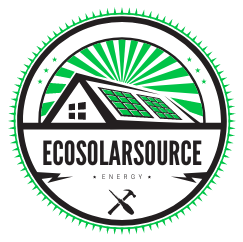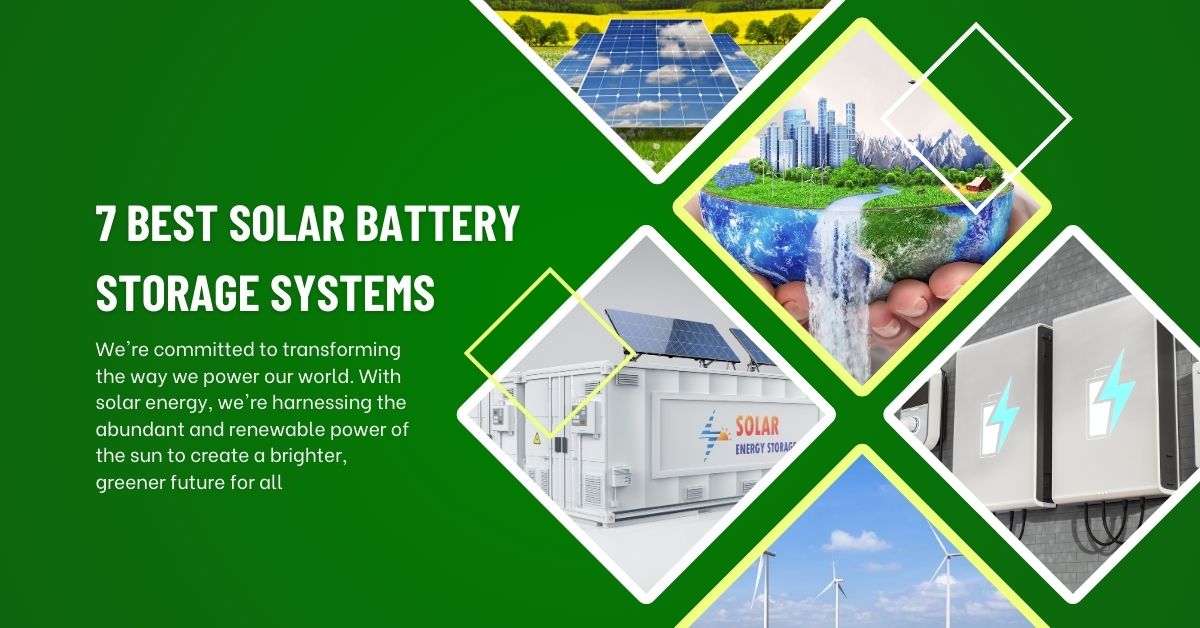7 Best Solar Battery Storage Systems
Here are 7 best solar battery storage systems available today, each offering unique benefits. Tesla Powerwall 2 stands out for its seamless integration and high energy capacity. LG Chem RESU is known for its compact design and efficiency. Sonnen Eco offers a premium, durable system with smart energy management.
Enphase Encharge provides modular flexibility and reliability. Generac PWRcell excels with scalable storage options for larger homes. BYD B-Box offers safe, efficient lithium-iron-phosphate technology. SimpliPhi Power combines eco-friendly, non-toxic materials with excellent safety features, making it ideal for residential and commercial use. These systems optimize renewable energy utilization.
7 Best Solar Battery Storage Systems
Table of Contents
- Introduction to Solar Battery Storage
- What is Solar Battery Storage?
- Why is Solar Battery Storage Important?
- Key Factors to Consider When Choosing a Solar Battery Storage System
- Capacity
- Depth of Discharge (DoD)
- Efficiency
- Power Rating
- Lifespan and Warranty
- Scalability and Compatibility
- Types of Solar Battery Storage Systems
- Lithium-Ion Batteries
- Lead-Acid Batteries
- Flow Batteries
- Saltwater Batteries
- 7 Best Solar Battery Storage Systems
- 1. Tesla Powerwall
- 2. LG Chem RESU
- 3. Sonnen Eco
- 4. Enphase Encharge
- 5. BYD Battery-Box Premium
- 6. Pika Energy Harbor Smart Battery
- 7. SimpliPhi Power PHI 3.8
- Comparing the 7 Best Solar Battery Storage Systems
- Performance
- Cost-Effectiveness
- Efficiency Ratings
- Lifespan and Warranty Comparison
- Compatibility with Solar Panels and Inverters
- Benefits of Solar Battery Storage Systems
- Energy Independence
- Backup Power During Outages
- Reduced Energy Bills
- Environmental Impact
- The Future of Solar Battery Storage Systems
- Technological Advancements
- Innovations in Materials and Design
- Grid Integration and Smart Grids
- Conclusion
- Choosing the Right Solar Battery Storage System for Your Home or Business
- Final Thoughts on Solar Battery Storage
1. Introduction to Solar Battery Storage
What is Solar Battery Storage?
Solar battery storage systems store the excess electricity generated by solar panels for later use. This is especially important for homeowners and businesses that rely on solar power, as it enables them to utilize the stored energy during periods when the sun is not shining or when energy demand is high.
Unlike traditional energy systems, solar battery storage ensures that the energy generated is not wasted, providing a reliable backup for nighttime usage or during power outages. By integrating solar battery storage into a renewable energy system, users can optimize energy consumption and become less dependent on the traditional grid.
Why is Solar Battery Storage Important?
The growing popularity of renewable energy sources like solar power has increased the demand for energy storage solutions. Solar battery storage allows consumers to store surplus energy during sunny days and draw on that energy when needed, such as during the night or cloudy days. This reduces reliance on grid electricity, leading to lower energy bills and greater energy independence.
Moreover, as solar technology advances, efficient energy storage has become crucial in achieving sustainability and mitigating the environmental impacts of fossil fuels. A robust solar battery storage system enhances energy reliability and supports the global push toward renewable energy adoption.
2. Key Factors to Consider When Choosing a Solar Battery Storage System
Choosing the right solar battery storage system can be complex. Here are the most important factors to consider:
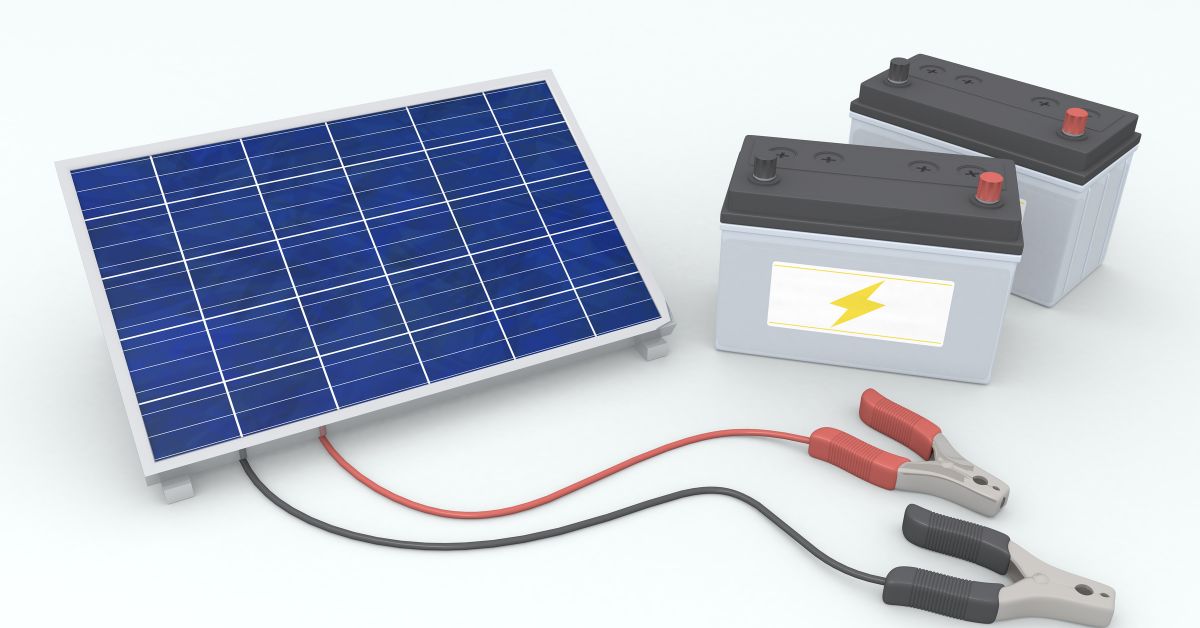
Capacity
The capacity of a battery indicates how much energy it can store, typically measured in kilowatt-hours (kWh). Larger households or businesses with high energy needs should opt for a battery with higher capacity to meet their energy demands.
Depth of Discharge (DoD)
DoD refers to the percentage of the battery that can be used before recharging is necessary. For instance, a battery with a 90% DoD can use 90% of its stored energy before needing to recharge. Higher DoD means more usable energy, and it’s an important metric when comparing battery options.
Efficiency
The efficiency of a battery storage system determines how much energy is stored and later used without loss. Higher efficiency ratings indicate that the system can better store and transfer energy without significant waste, which can lead to cost savings in the long run.
Power Rating
The power rating of a battery is measured in kilowatts (kW) and refers to the amount of power the battery can supply at one time. A higher power rating is useful for households or businesses that need to power multiple devices or appliances simultaneously.
Lifespan and Warranty
Solar batteries typically degrade over time, so it’s essential to consider their lifespan and warranty. A long-lasting battery will provide value for many years, and an extensive warranty can protect your investment.
Scalability and Compatibility
Consider whether the battery system can be expanded to accommodate future energy needs. Compatibility with your existing solar panels and inverters is crucial to ensure seamless integration into your solar energy system.
3. Types of Solar Battery Storage Systems
There are several types of batteries used in solar energy systems, each with its advantages and disadvantages.
Lithium-Ion Batteries
Lithium-ion batteries are the most popular choice for solar storage due to their high efficiency, long lifespan, and compact size. They offer a higher DoD compared to other battery types and are relatively lightweight, making them ideal for residential and commercial use.
Lead-Acid Batteries
Lead-acid batteries are a more affordable option but have a lower efficiency and shorter lifespan than lithium-ion. They require regular maintenance and have a lower DoD, meaning they can’t use as much stored energy before recharging.
Flow Batteries
Flow batteries are a newer technology with high scalability and a long lifespan. They use two chemical components dissolved in liquids that are separated by a membrane. Flow batteries are ideal for large-scale energy storage, but they tend to be bulkier and more expensive.
Saltwater Batteries
Saltwater batteries are an emerging eco-friendly option that doesn’t rely on heavy metals or toxic materials. They are non-toxic, sustainable, and safe to recycle, but they are less efficient and not as widely available as lithium-ion or lead-acid batteries.
4. 7 Best Solar Battery Storage Systems
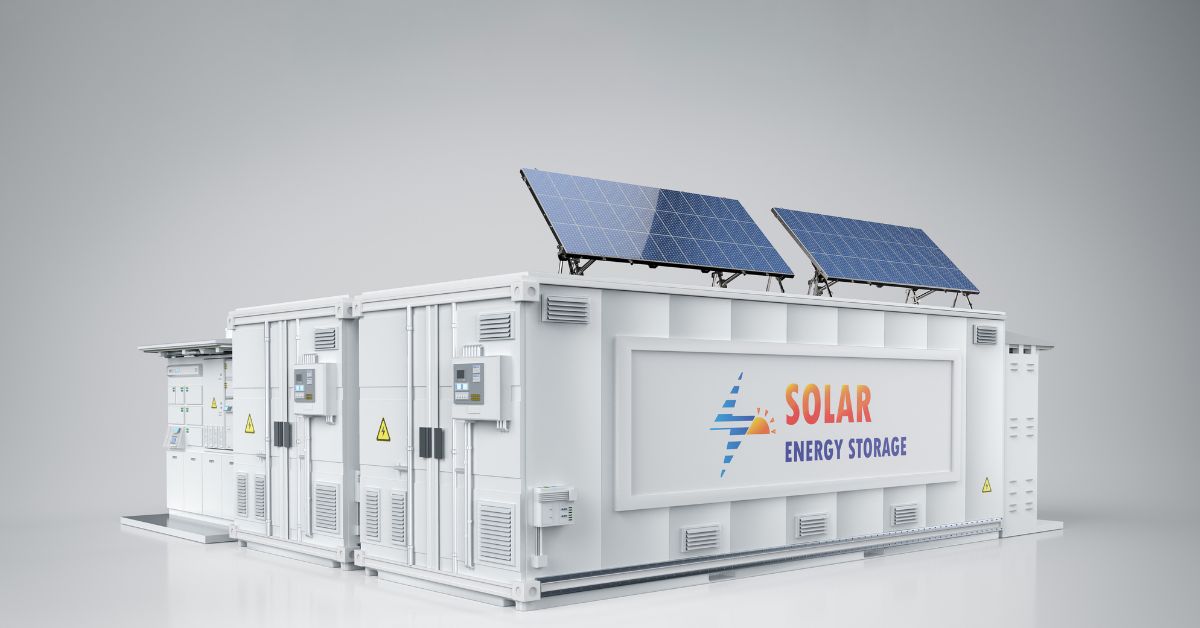
1. Tesla Powerwall
The Tesla Powerwall is one of the most well-known solar battery storage systems. It boasts a high energy capacity, scalability, and efficiency, making it suitable for residential and small commercial use. The Powerwall’s sleek design, seamless integration with solar panels, and strong warranty make it a popular choice.
- Capacity: 13.5 kWh
- DoD: 100%
- Power Rating: 5 kW continuous, 7 kW peak
- Warranty: 10 years
2. LG Chem RESU
The LG Chem RESU is a compact and powerful lithium-ion battery. It’s designed to be wall-mounted or floor-standing and integrates well with solar inverters. Its compact size makes it a good fit for homes with limited space.
- Capacity: 9.8 kWh
- DoD: 90%
- Power Rating: 5 kW
- Warranty: 10 years
3. Sonnen Eco
The Sonnen Eco is an advanced, intelligent energy storage solution that includes smart energy management features. It offers high efficiency, long lifespan, and the ability to monitor energy usage through a user-friendly app. The system can be customized for both residential and commercial installations.
- Capacity: 10 kWh (scalable up to 20 kWh)
- DoD: 100%
- Power Rating: 5 kW
- Warranty: 10 years
4. Enphase Encharge
Enphase Encharge is a modular energy storage system designed to integrate with Enphase microinverters. It provides reliable backup power and high efficiency, making it ideal for homes that experience frequent power outages.
- Capacity: 3.36 kWh per module (scalable)
- DoD: 100%
- Power Rating: 1.28 kW per module
- Warranty: 10 years
5. BYD Battery-Box Premium
The BYD Battery-Box Premium is a lithium-ion battery with a modular design, allowing for scalable energy storage. It’s ideal for homes and businesses with varying energy needs, and its durability ensures long-term reliability.
- Capacity: 8.3 kWh (scalable up to 22.1 kWh)
- DoD: 95%
- Power Rating: 5 kW
- Warranty: 10 years
6. Pika Energy Harbor Smart Battery
The Pika Energy Harbor Smart Battery is known for its efficiency and ease of installation. It works well in residential and small commercial settings and can be combined with multiple units for increased capacity. It integrates seamlessly with the Pika Energy Island system.
- Capacity: 10 kWh
- DoD: 96%
- Power Rating: 6.7 kW
- Warranty: 10 years
7. SimpliPhi Power PHI 3.8
The SimpliPhi PHI 3.8 offers high efficiency, durability, and safety. It’s designed to perform well in off-grid and grid-tied solar systems, and its lightweight design makes installation easier.
- Capacity: 3.8 kWh (scalable)
- DoD: 80%
- Power Rating: 3.8 kW
- Warranty: 10 years
5. Comparing the 7 Best Solar Battery Storage Systems
Performance
When comparing performance, Tesla Powerwall, Sonnen Eco, and Enphase Encharge stand out for their efficiency and high capacity. Tesla’s 100% DoD provides users with access to all stored energy, while Sonnen Eco’s smart energy management features add extra value in terms of optimizing energy consumption.
Cost-Effectiveness
BYD Battery-Box Premium and LG Chem RESU offer a good balance between cost and performance, making them ideal for homeowners looking for affordable yet powerful solutions. Tesla Powerwall and Sonnen Eco are slightly more expensive but provide added functionality and longer warranties.
Efficiency Ratings
Tesla Powerwall, Sonnen Eco, and Enphase Encharge top the list with their high-efficiency and reliable energy storage solutions, ensuring minimal energy loss. SimpliPhi PHI 3.8 also boasts excellent efficiency, particularly in off-grid scenarios.
Lifespan and Warranty Comparison
All seven batteries come with a 10-year warranty, ensuring long-term protection. In terms of lifespan, the Tesla Powerwall and Sonnen Eco offer high cycles of usage before degradation, ensuring a longer overall operational period.
Compatibility with Solar Panels and Inverters
The Enphase Encharge system is specifically designed to integrate with Enphase microinverters, while the Tesla Powerwall and Sonnen Eco are more versatile and compatible with a variety of inverters and solar panel systems.
6. Benefits of Solar Battery Storage Systems
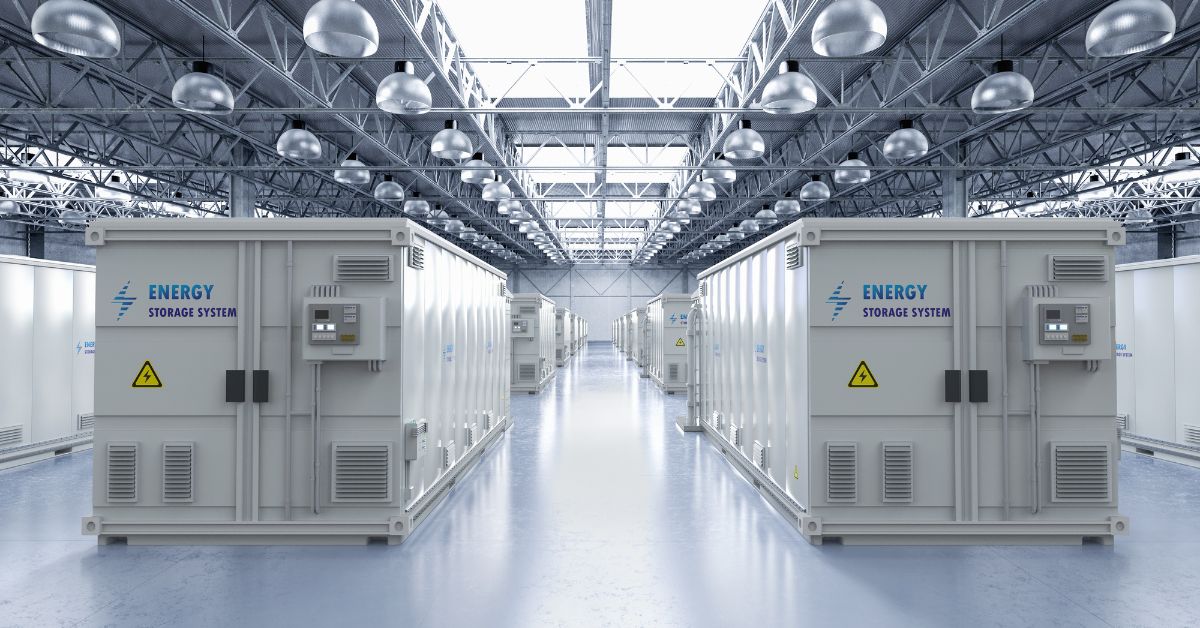
Energy Independence
Solar battery storage systems allow homes and businesses to become less reliant on the traditional power grid. With solar batteries, users can store excess energy generated during the day and use it at night or during power outages, ensuring continuous energy availability.
Backup Power During Outages
One of the major advantages of having a solar battery system is the ability to use stored energy during outages. This is especially important for regions prone to power outages or natural disasters, where a reliable backup energy source can ensure critical systems remain operational.
Reduced Energy Bills
By storing excess solar energy, users can significantly reduce their reliance on grid electricity, leading to lower energy bills. With time-of-use (TOU) billing structures, solar battery owners can further optimize savings by using stored energy during peak hours when electricity rates are higher.
Environmental Impact
Solar battery storage systems help reduce carbon emissions by maximizing the use of renewable energy. By storing clean energy, users contribute to a greener environment and help combat climate change.
7. The Future of Solar Battery Storage Systems
Technological Advancements
As technology continues to evolve, we can expect solar battery storage systems to become even more efficient, affordable, and durable. Advancements in battery materials, such as solid-state batteries, promise to increase energy density and lifespan while reducing costs.
Innovations in Materials and Design
Researchers are exploring new materials such as graphene and silicon to improve energy storage capacity and reduce degradation over time. These innovations could lead to more compact and powerful battery systems.
Grid Integration and Smart Grids
The integration of solar battery storage systems with smart grids is another exciting development. Smart grids allow for more efficient distribution and storage of electricity, optimizing energy usage across large areas and improving the reliability of renewable energy sources.
Conclusion
When choosing a solar battery storage system, it’s essential to consider factors such as capacity, efficiency, power rating, and warranty. The 7 systems reviewed in this article—Tesla Powerwall, LG Chem RESU, Sonnen Eco, Enphase Encharge, BYD Battery-Box Premium, Pika Energy Harbor, and SimpliPhi PHI 3.8—are all excellent choices, each offering unique features that cater to different energy needs.
Investing in solar battery storage not only provides energy independence and backup power but also contributes to a sustainable and eco-friendly future. By selecting the right system for your home or business, you can enjoy the long-term benefits of reduced energy costs and environmental impact.
Ultimately, solar battery storage systems are paving the way for a cleaner, more reliable energy future, and choosing the right system can have a lasting impact on both your energy consumption and your environmental footprint.
Click Here to Know More About 7 Best Solar Battery Storage Systems
